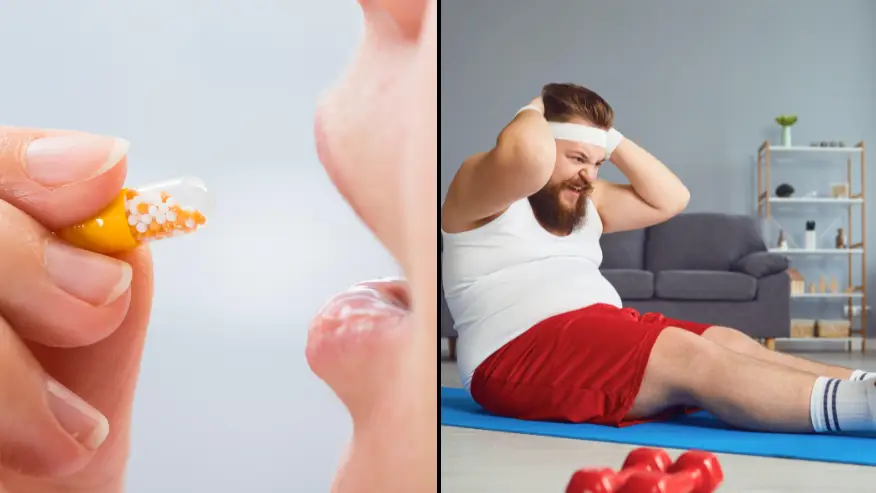
Scientists reckon they are one step closer to developing a fat-melting pill that could mimic the effects of exercise.
But, don't do away with that running kit just yet.
Our glory days of sitting on the couch eating potato chips in our pants while playing video games and losing weight are still a pipe dream...for now.
A group of clever scientists from America's prestigious Massachusetts Institute of Technology (MIT) reckon they have cracked the genetic code that will teach scientists how to make some of the cells in the human body go in reverse.
Advert

Specifically, mesenchymal stem cells morph into fat-storing machines.
Exercise usually flips the switch on that, but, as researchers grow to understand this process, it could see scientists develop medications that trigger that biological u-turn without us even having to get off the sofa.
MIT researcher Manolis Kellis, who was the lead author on the groundbreaking research paper, said: "It is extremely important to understand the molecular mechanisms that are drivers of the beneficial effects of exercise and the detrimental effects of a high-fat diet."
Dr Kellis, an expert in computational biology, added that this knowledge can be used to 'develop drugs that mimic the impact of exercise across multiple tissues', as per The Sun.
That being said, it could be years before pharmaceutical intervention is the solution to your scorching case of chronic laziness.

So Dr Kellis and his team at MIT recommend that people shouldn't cancel their gym membership just yet.
"The message for everyone should be, eat a healthy diet and exercise if possible," Dr Kellis said as per the Daily Mail.
The findings were published in the medical journal Cell Metabolism on October 4.
Advancements in cellular understanding and fat-blasting medications, while they still may be some time away, are good news for people struggling with their weight across the UK, US, and Australia.
According to a most recent NHS health survey, around two-thirds of English people aged 16 or over are overweight or obese.
The Australian Government reports that nearly two-thirds of adults are overweight or obese, with waistbands continuing to expand for a large number of folk Down Under.
In the US, the obesity prevalence was 41.9 per cent as per data taken in 2017.
As people around the world continue to move less and stuff our gobs more, there is no better time than now to heed Dr Kellis' recommendation to eat and live well.
And he's literally an expert on genetic variations on human disease and their contributions to obesity. So we should listen up.